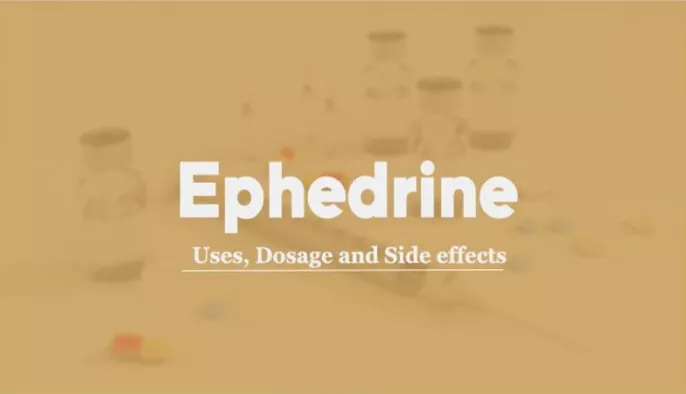Cardiac arrhythmias, characterized by irregular heartbeats, can pose serious health risks. They may manifest as palpitations, dizziness, or even lead to life-threatening conditions like stroke or sudden cardiac arrest. While various factors contribute to arrhythmias, including genetic predispositions and lifestyle choices, the role of dietary supplements has garnered increasing attention in recent years. Many individuals turn to supplements for health benefits, often without realizing that some may carry significant risks, particularly regarding heart health. This article aims to explore the relationship between specific dietary supplements and the risk of developing arrhythmias, emphasizing the need for awareness and caution among consumers.
Understanding Arrhythmias
Arrhythmias occur when the electrical signals that coordinate heartbeats malfunction. This can result in the heart beating too quickly (tachycardia), too slowly (bradycardia), or erratically. The most common type of sustained arrhythmia is atrial fibrillation (AFib), which affects millions globally and is particularly prevalent among older adults but increasingly observed in younger populations as well. Symptoms can range from mild to severe and may include:
Palpitations: A sensation of a racing or fluttering heart.
Dizziness or lightheadedness: Resulting from inadequate blood flow.
Shortness of breath: Often exacerbated by physical activity.
Fatigue: Due to decreased cardiac efficiency.
Certain dietary supplements have been implicated in triggering these irregular heart rhythms, prompting healthcare professionals to investigate their safety more rigorously.
SEE ALSO: What Arrhythmias Are Induced by Digoxin?
Supplements Linked to Arrhythmias
1. Caffeine
Caffeine is a stimulant found in coffee, tea, energy drinks, and many dietary supplements. While moderate caffeine intake is generally considered safe for most people, excessive consumption can lead to increased heart rate and palpitations. Some studies suggest that high doses of caffeine may precipitate arrhythmias in susceptible individuals, particularly those with pre-existing heart conditions or those who consume it in combination with other stimulants.
2. Ephedra and Ephedrine Alkaloids
Ephedra is a plant-derived stimulant that was widely used in weight-loss supplements until it was banned by the FDA due to its association with serious cardiovascular events, including arrhythmias, heart attacks, and strokes. Despite the ban, products containing ephedrine alkaloids still appear on the market and pose significant risks. These compounds can increase heart rate and blood pressure, leading to potentially fatal arrhythmic events.
3. Bitter Orange (Citrus aurantium)
Bitter orange is often used as a weight-loss aid and contains synephrine, a compound structurally similar to ephedrine. It has been linked to increased heart rate and blood pressure, raising concerns about its potential to induce arrhythmias.
Although more research is needed to establish a direct causal relationship, case reports have associated bitter orange with irregular heart rhythms.
4. Fish Oil (Omega-3 Fatty Acids)
While omega-3 fatty acids are known for their cardiovascular benefits, recent studies have indicated that high doses may increase the risk of atrial fibrillation. Some research suggests that taking fish oil supplements at doses greater than one gram per day could be associated with an elevated risk of AFib. However, it’s important to note that omega-3s from dietary sources like fish are generally considered beneficial.
5. St. John’s Wort
This herbal supplement is commonly used for depression but can interact with various medications, including those used to manage arrhythmias. St. John’s Wort may reduce the effectiveness of drugs like warfarin and digoxin, which are crucial for patients with AFib or other arrhythmias67. Its potential to alter drug metabolism raises concerns about its safety in individuals with existing heart conditions.
6. Vitamin E
Vitamin E is an antioxidant supplement that has been studied for its potential cardiovascular benefits; however, it may also pose risks for individuals taking anticoagulant medications. Some studies suggest that vitamin E could increase bleeding risks when combined with blood thinners like warfarin. While not directly linked to causing arrhythmias, its interaction with medications highlights the importance of cautious supplementation.
7. Ashwagandha
Traditionally used in Ayurvedic medicine for stress relief, ashwagandha has recently gained popularity as an adaptogen.
However, some case reports indicate that it may provoke arrhythmias in certain individuals.
Although clinical evidence is limited, patients should be cautious when using this supplement alongside other heart-related medications.
8. Guarana
Guarana contains caffeine and is often included in energy drinks and weight-loss supplements. Its stimulant properties can lead to increased heart rate and blood pressure, potentially triggering arrhythmias in sensitive individuals. The cumulative effect of guarana combined with other stimulants should be carefully monitored.
9. Creatine
Commonly used by athletes for performance enhancement, creatine has been associated with dehydration and electrolyte imbalances when misused. Such imbalances can contribute to arrhythmic events; therefore, caution is advised when using creatine supplements without proper hydration and monitoring.
10. Cola Nut
Another source of caffeine found in some dietary supplements is cola nut. Similar to other caffeinated products, excessive intake can lead to an increased risk of arrhythmias due to its stimulant effects on the heart.
Conclusion
The relationship between dietary supplements and cardiac arrhythmias underscores the importance of vigilance among consumers and healthcare providers alike. While many people view supplements as safe alternatives to pharmaceuticals, they are not subject to the same rigorous testing and regulation by authorities like the FDA. As such, consumers must approach supplementation with caution—particularly those with pre-existing health conditions or those taking multiple medications.
Related topics:


